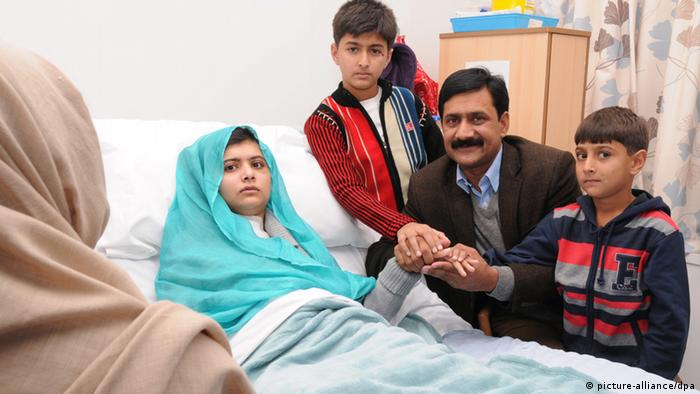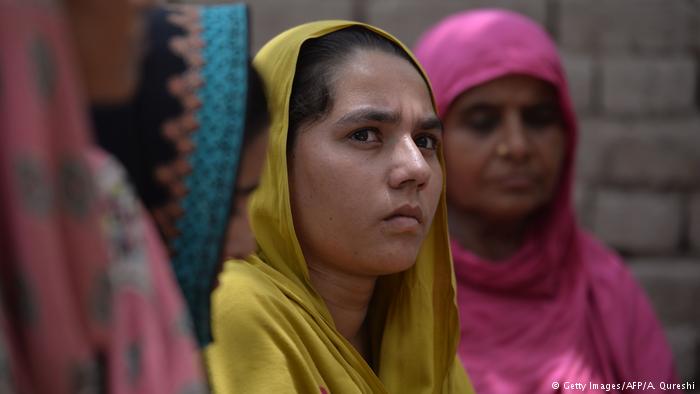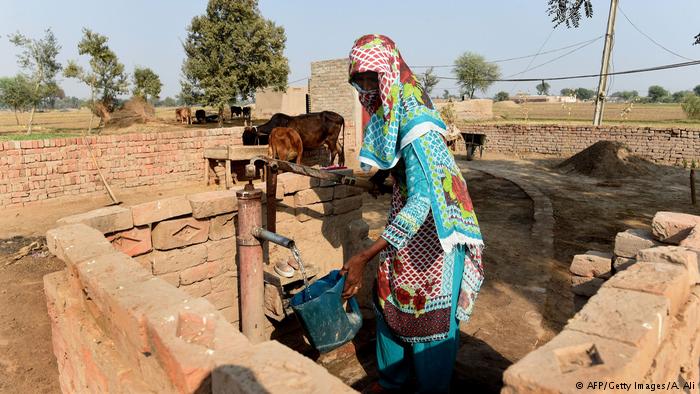Pakistan, women and politics
 What makes Malala Yousafzai stand out is not only her unwavering resolve to continue education, but the ambition to be a politician, which is quite an exception for most Pakistani women. One wonders, how come? After all, Pakistan is a country, which, in view of the western criticism, often consoles itself with boastful references of its first female Muslim prime minister, Benazir Bhutto, while flaunting the sleek but (constitutionally) meek squad of female parliamentarians, for example the speaker of the National Assembly, Fehmida Mirza and foreign minister Hina Rabbani Khar. So how can Pakistani women be less inclined to politics as a career or the political process per se?
What makes Malala Yousafzai stand out is not only her unwavering resolve to continue education, but the ambition to be a politician, which is quite an exception for most Pakistani women. One wonders, how come? After all, Pakistan is a country, which, in view of the western criticism, often consoles itself with boastful references of its first female Muslim prime minister, Benazir Bhutto, while flaunting the sleek but (constitutionally) meek squad of female parliamentarians, for example the speaker of the National Assembly, Fehmida Mirza and foreign minister Hina Rabbani Khar. So how can Pakistani women be less inclined to politics as a career or the political process per se?
There are surely a few indicators and social determinants suggesting how politically active Pakistani women are. First of all, no matter how much we laud the increasing number of female legislators, which stands at 76 in 2012 compared to 2 in 1947, we must not forget the political hierarchies these elected ladies belong to. Second, representation of the total 50 percent of Pakistan’s female population in the Parliament is way lesser than their male colleagues. Besides, the political strength of these female law makers depends heavily on their 17% reserved seats, as only a few secure general seats. Electoral segregation through a gender-based quota in parliament deprives women parliamentarians of their constituencies and ultimately bars them from establishing a rapport with the voters as elected representatives.
Family counts
While some consider the quota system for female representatives mandatory to end gender disparity in the political sphere of Pakistan, the system leads to the monopoly of a few influential women, promotes paternalistic politics and discourages the decentralization of power. However, the political empowerment of even these high-profile women rests on the discretion of male-dominated political parties for the allocation of reserved seats in the Parliament.
The offspring of a feudal system and heirs of political dynasties, the leading ladies of Pakistani politics tend to bag election nominations effortlessly from common party workers. These nominations are usually not made on the basis of an impressive political record or popularity in a constituency, but on the basis of family connections. This undemocratic monopoly marginalizes all female political workers lacking such illustrious credentials. Advocates of democracy must acknowledge that significant representation of women in mainstream politics will remain unattainable until they are politically mobilized at the grassroots.
The vulnerable class
Far from the glitzy appearances of prominent women lawmakers on TV talk shows, a fairly large majority of the female population in Pakistan is unaware of its democratic rights and remains politically inactive. Political alienation of the working class woman makes her socially more vulnerable to the undemocratic patriarchal norms like honor killings, domestic violence and sexual harassment, to name a few.
What is more disturbing is the fact that the potential of this political force is being radically channeled by the propagators of political Islam. In a country engulfed by rampant extremism, petty religious groups gain their clout through the political indoctrination of ordinary women. Deprived of education and decision-making, these women are so brainwashed by the local clerics’ teachings that sending their kids to a Jihadi seminary seems more practical to them than searching for a school.
In an average Pakistani woman’s life, paying heed to the cleric’s calls for protest against enemies of Islam or spiritual advices of a ‘televangelist’ is more important than listening to an elite lawmaker’s complex interpretations of the Women’s Protection Bill. The reason is obvious. Since the former offer some sort of immediate consolation to the spiritual, social or sometimes financial woes, the latter has very little association to or rarely recognizes the predicament of an underprivileged woman.
Family and religion
A recent online survey conducted by The Express Tribune has revealed that Pakistani women (77 percent) cite family influence as the basis of their faith and follow their religious beliefs more rigidly than men (36 percent) who tend to study their beliefs. This depoliticized mass consciousness is a fertile ground to sow the seeds of religious activism and this is what we are witnessing in Pakistan. Following the successful display of girl power by the vigilantes of Jamia Hafza (women’s wing of the notorious Red Mosque) and the ‘popularity’ of female seminaries like Al-Huda International Foundation – whose rector hails Osama as a warrior- the political space of Pakistani women is being gradually occupied by the Taliban inspired mullah mafia. In May 2011, security officials arrested four terrorist from an all-female Madrassa (religious school) in Gujranwala, Punjab.
Owing to this rigorous religious schooling, women as well as female political representative fail to defy the authority of death-awarding Jirgas (tribal councils) and the fatwa-hurling Ulemas(religious heads) who victimize them in the name of Islam. These totalitarian practices have disenfranchised a lot of Pakistani women especially in Khyber Pakhtunkhwa and the Federally Administered Tribal Areas, where Jirgas threaten women voters and political candidates from taking part in elections.
The political participation of women is essential to change the anti-democracy discourse propagated by the radical Islamists. The point is not to look down upon the contribution of women legislators in national politics, but to invest more in the political education of gullible women at the grassroots. Political parties and the government need to protect their constitutional rights before they all turn into the ideological militia of religious parties proclaiming Jihad against the US or Israel.
Author: Duriya Hashmi
Editor: Manasi Gopalakrishnan






